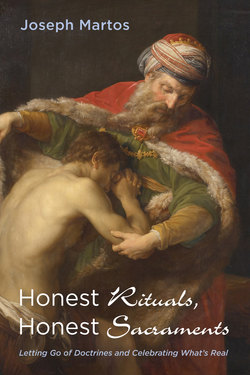Описание книги
Honest rituals are ceremonial actions that celebrate what is actually happening in people's lives. Religious rituals, however, often celebrate beliefs and doctrines (e.g., the birth of Christ, God's forgiveness of sins, or the gifts of the Holy Spirit) that have little to do with people's experience.
Martos argues that early Christian rituals were grounded in experiences such as conversion, community, commitment, and self-giving. Lacking a vocabulary to name such experiences, the authors of the New Testament and other early documents resorted to metaphors such as baptism into Christ, receiving the Holy Spirit, forgiveness by God, and the presence of Christ during worship. By the fourth century, however, those metaphors were taken to be unexperienced metaphysical realities rather than experienced realities. The medieval schoolmen developed philosophical explanations of what went on in church rituals, and the Catholic Church continues to teach that its sacraments are automatically effective despite growing evidence to the contrary.
What if religious rituals were to regain their original authenticity? What if the guiding value in designing church ceremonies was honesty rather than liturgical correctness? After liberating the reader from doctrinal constraints, Martos invites Catholics into a re-visioning of the traditional sacraments and a reawakening of ritual imagination in non-Western cultures.
Martos argues that early Christian rituals were grounded in experiences such as conversion, community, commitment, and self-giving. Lacking a vocabulary to name such experiences, the authors of the New Testament and other early documents resorted to metaphors such as baptism into Christ, receiving the Holy Spirit, forgiveness by God, and the presence of Christ during worship. By the fourth century, however, those metaphors were taken to be unexperienced metaphysical realities rather than experienced realities. The medieval schoolmen developed philosophical explanations of what went on in church rituals, and the Catholic Church continues to teach that its sacraments are automatically effective despite growing evidence to the contrary.
What if religious rituals were to regain their original authenticity? What if the guiding value in designing church ceremonies was honesty rather than liturgical correctness? After liberating the reader from doctrinal constraints, Martos invites Catholics into a re-visioning of the traditional sacraments and a reawakening of ritual imagination in non-Western cultures.
